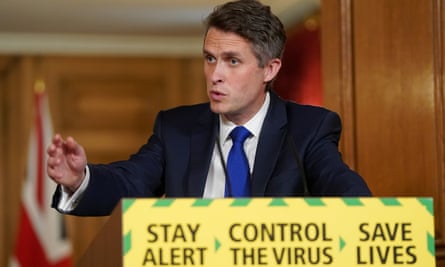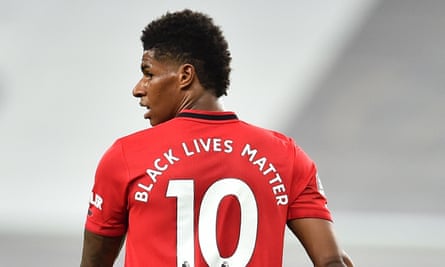After another terrible week for the government that saw two more screeching U-turns and warnings from Tory backbenchers of mounting discontent in the ranks, a former cabinet minister from Theresa May’s time as prime minister had this to say. “If we were in normal times you would be hearing talk by now about removing the prime minister. It is that bad. But you don’t get rid of leaders in a crisis like this.”
The same Tory MP said that a batch of cabinet ministers including education secretary Gavin Williamson also deserved to be sacked and that the No 10 operation was “totally dysfunctional”. There were so many decisions of crucial importance in the fight against Covid-19 that had to be referred up the chain of command to Downing Street that its hugely inexperienced staff – many of whom were more used to running campaigns than the country – were simply unable to cope.
Three months into the lockdown such views are now widely shared on the Conservative benches as the list of U-turns and broken promises over Covid-19 grows. The latest – a decision by health secretary Matt Hancock to ditch the tracing app hailed by Boris Johnson only weeks ago as “world beating” – prompted the Daily Mail to splash a despairing headline across its front page on Friday asking: “How many more Corona fiascos?”
Only two days earlier Marcus Rashford, the Manchester United and England striker, had forced Johnson to do an about turn over free schools meals for the poorest pupils in the latest humiliation for the prime minister. Tory anger, already raised to dangerous levels by the recent scrapping of plans to re-open all primary schools before the summer holidays, was heightened still further by endless taunts about Rashford hitting the target, while Johnson and his Tory government had missed it yet again.

And all this as the UK’s death toll from Covid-19 climbed towards 50,000, the worst performance of any European country, and as it heads into an economic downturn, which the Organisation for Economic Co-operation and Development (OECD) expects to be more serious than those heading the way of any of our neighbour nations.
The last three months have not only transformed profoundly the daily lives of every UK citizen but have also changed utterly the political mood in Westminster and the country. When Johnson announced the lockdown on 23 March, Jeremy Corbyn was still the Labour party’s leader, limping towards the end his tenure, while Johnson soared in the polls.
Johnson even enjoyed a post-lockdown surge in ratings as his honeymoon with the electorate survived the closure of pubs, restaurants and shops. There was a rallying round the flag that seemed to play perfectly, for a time at least, for the Tory leader who modelled himself on Winston Churchill.
In the last Opinium poll for The Observer in late March, the week after the lockdown began, the Tories had a massive 26-point lead over Labour (54% to 28%). Johnson’s personal approval rating was at +29%. This weekend’s poll, by contrast, has Labour under Keir Starmer neck and neck with the Conservatives, with Johnson’s approval ratings and those of his government having gone through the floor.
Immediately after Starmer won Labour’s leadership contest on 4 April, many at Westminster thought he might struggle to make his mark with the pandemic raging. The seriousness of the nation’s plight meant he had little option but to offer to abandon normal political hostilities and pledge instead to work together in the national interest where possible with Johnson’s government.

But soon it became apparent that Johnson and his administration, together with the Whitehall machine, had not planned adequately for the pandemic. Evidence came to light showing that the prime minister, while revelling in having delivered Brexit, had been asleep at the wheel in early to mid March as the virus spread to the West. It became clear that crucial days and weeks in which hard decisions should have been taken had been missed and that the lockdown had been ordered too late.
Chaos ensued as NHS and care staff complained of a lack of personal protective equipment and the contact tracing system which had controlled the spread of the virus in countries like South Korea, was suddenly and mysteriously abandoned here. Subsequently ministers and health experts would admit that there simply had not been the capacity to carry out enough tests precisely when they were needed.
As the number of Covid-19 cases and deaths soared and hospitals emptied their oldest patients who carried the virus into care homes, worsening the spread, trust in Johnson’s government began to drain away. Starmer, not wanting to be associated with the increasingly obvious failings gradually turned up the criticism and picked holes in Johnson’s defences at successive prime minister’s questions. Then last month the Guardian and Daily Mirror broke the story of how Johnson’s closest adviser Dominic Cummings had appeared to breach rules by driving with his wife and child to Durham – something for which he refused to resign or apologise – and trust in Johnson’s regime hit the floor.
On Monday evening, Tory concerns at the way the government was handling the crisis were aired at a meeting of the executive of the 1922 committee of Conservative backbenchers. Senior MPs were furious that No 10 was blundering on while refusing to listen to advice offered by them on how to avoid more disasters.
Since then concerns have been expressed privately by many of the new Tory MPs from seats in the north of England who went on local radio and television stations to speak out against free school meals only to see the government pull the rug from under them and do its U-turn days later. Another former cabinet minister said: “They feel very bruised. They went out in public to take the government line, when the more cynical of us could see a U-turn coming and made ourselves unavailable to the media for a couple of days.”
There is still more than four years for Johnson and his government to recover its poise and sense of direction, and for the memories of Covid-19 crisis to fade. It is true also that Starmer, while having proved effective in criticising the Tories for their failings so far, has yet to offer much of his own agenda for the future.
But the transformed mood among the new generation of Tory MPs who came to Westminster expecting so much in December is telling. They arrived so optimistic about Johnson’s government and their party, only to see it flounder. An ex-minister added: “A lot of them were elected unexpectedly and so from December 12 to the end of January they were having the world’s most-extended Christmas because everything they had ever dreamed of had landed in their laps.
“Since then, though, the plague has arrived and their entire life has been turned upside down and they don’t know what has hit them.”